
2-4 Workdays Article No. 11011
Article No. 11011

2-4 Workdays Article No. 10223
Aroma(s) : Chocolaty, Nutty
Article No. 10223
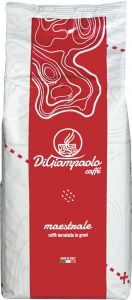
2-4 Workdays Article No. 10592
Aroma(s) : Chocolaty, Nutty
Article No. 10592
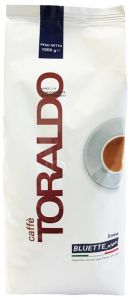
2-4 Workdays Article No. 1855
Aroma(s) : Chocolaty, Malty
Article No. 1855
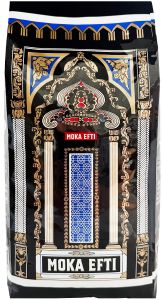
2-4 Workdays Article No. 10978
Aroma(s) : Chocolaty, Nutty
Article No. 10978
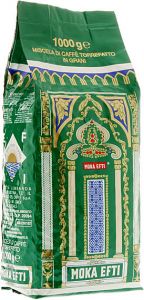
2-4 Workdays Article No. 10104
Aroma(s) : Nutty, Malty
Article No. 10104
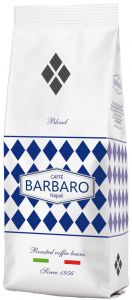
2-4 Workdays Article No. 10396
Aroma(s) : Chocolaty, Nutty
Article No. 10396
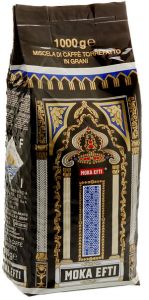
2-4 Workdays Article No. 10103
Aroma(s) : Chocolaty, Nutty
Article No. 10103

2-4 Workdays Article No. 10738
Aroma(s) : Nutty, Fruity
Article No. 10738

2-4 Workdays Article No. 10594
Aroma(s) : Chocolaty, Nutty
Article No. 10594

2-4 Workdays Article No. 10740
Aroma(s) : Chocolaty, Fruity
Article No. 10740
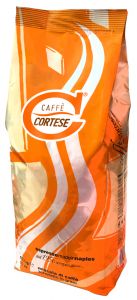
2-4 Workdays Article No. 10509
Aroma(s) : Chocolaty, Nutty
Article No. 10509

2-4 Workdays Article No. 10093
Aroma(s) : Nutty, Malty
Article No. 10093

2-4 Workdays Article No. 10974
Aroma(s) : Chocolaty, Caramel
Article No. 10974

2-4 Workdays Article No. 10154
Aroma(s) : Chocolaty, Cloves, Cinnamon, Nutty, Fruity
Article No. 10154

2-4 Workdays Article No. 1437
Aroma(s) : Chocolaty, Floral
Article No. 1437

2-4 Workdays Article No. 1926
Aroma(s) : Chocolaty, Nutty
Article No. 1926

2-4 Workdays Article No. 1397
Aroma(s) : Chocolaty, Malty
Article No. 1397

2-4 Workdays Article No. 1570
Aroma(s) : Nutty, Malty
Article No. 1570
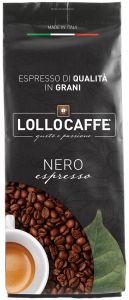
17-19
Workdays
Extended delivery time
Please note that if you purchase this item, you should expect a longer delivery time for your entire order. We cannot ship other items in your order, that are in stock, ahead of time.
Article No. 10330
Aroma(s) : Chocolaty, Nutty
Article No. 10330
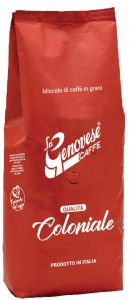
2-4 Workdays Article No. 10236
Aroma(s) : Chocolaty, Fruity
Article No. 10236

2-4 Workdays Article No. 10275
Aroma(s) : Chocolaty, Malty
Article No. 10275
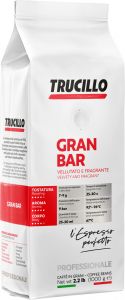
2-4 Workdays Article No. 10699
Aroma(s) : Chocolaty, Fruity
Article No. 10699

2-4 Workdays Article No. 10359
Aroma(s) : Chocolaty, Floral
Article No. 10359

2-4 Workdays Article No. 10332
Aroma(s) : Chocolaty, Nutty
Article No. 10332

2-4 Workdays Article No. 10739
Aroma(s) : Chocolaty, Nutty, Malty
Article No. 10739
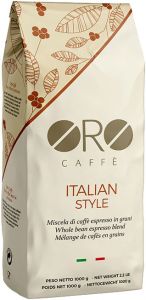
2-4 Workdays Article No. 10319
Aroma(s) : Nutty, Malty
Article No. 10319

2-4 Workdays Article No. 10783
Aroma(s) : Chocolaty, Nutty
Article No. 10783
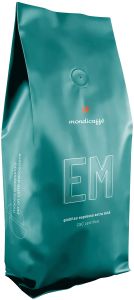
2-4 Workdays Article No. 10752
Aroma(s) : Chocolaty, Nutty
Article No. 10752

2-4 Workdays Article No. 10854
Aroma(s) : Nutty, Malty, Floral
Article No. 10854

2-4 Workdays Article No. 10843
Article No. 10843

2-4 Workdays Article No. 1722
Aroma(s) : Chocolaty, Nutty
Article No. 1722

2-4 Workdays Article No. 10922
Aroma(s) : Chocolaty, Nutty
Article No. 10922

2-4 Workdays Article No. 10094
Article No. 10094
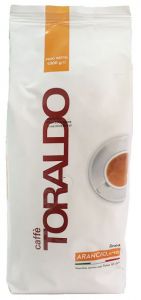
2-4 Workdays Article No. 1852
Aroma(s) : Nutty, Floral
Article No. 1852

2-4 Workdays Article No. 1927
Aroma(s) : Nutty, Malty
Article No. 1927
Low acid coffee - we don't want any nasty acidity and little unpleasant bitterness in our coffee.
What is acidity in a low acid coffee?
First of all, we have to debunk a myth: the word "acidity" definitely has an unpleasant sound but does the acidity of coffee really have an unpleasant taste?
The answer is not simple. Acidity, not to be confused with astringency or roasting intensity, is a property that, if well dosed and perfected by the techniques of master roasters, enriches coffee with flavor and positive properties.
A coffee with an excessively acidic and above all sour taste is the result of an inaccurate choice of roasting times and temperatures. This is because different types of natural acids coexist within the bean.
While some of these acids are savory on the palate and generally good for the body, others have a decidedly too pronounced flavour to be considered pleasant and undesirable properties.
For this reason, when we talk about acidity we must be careful: the taste of citric acid is decidedly more beneficial and pleasant for the drink than the taste of other acids that should be broken down during roasting such as, for example, "chlorogenic acids".
A coffee with little acid - like an organic low acid coffee - definitely helps to lose that feeling of heaviness to the taste, which lacks the mouth and which can be found in other coffees.
What is the precondition to turn green coffee beans into the espresso type you truly love?
A wise choice and perfect compilation of green coffees
Every variety has its own flavour profile and adds to the character of an ideal blend. Careful assortment of different coffee types ensure low acidity.
You can compare this process with the creating of a wine Cuvee.
The roastmaster knows how to create an unmistakable style, well-balanced but distinctive. This is why most coffee-lovers prefer blends instead of single-variety coffees, of which some lack complex aromas and extraordinary taste.
The mixing ratio between Arabica and Robusta beans
It is now widely understood, that a high ratio of Arabica coffees not necessarily guarantees high quality roasted beans. There are as many sub-standard Arabica coffees as there are sophisticated Robusta beans. The interaction of both varieties makes the secret of an excellent espresso coffee. We can compare it with bread: you don’t necessarily notice there is salt in it, but you will taste when it is missing.
The roasting process
The roasting time of raw coffee is essential to the final taste. Especially in southern Italy, the roasting takes very long, (20 to 28 minutes) at a relatively low temperature. That is a main factor to ensure a minimum of chloragen acids and the reduction of bitter substances. In Naples most beans leave the roast drum shiny black with an oily look because the longer a bean is roasted, the more oil is drawn to the surface. This is not a lack of quality, but highly welcome.
Extraction for low acid coffee beans
The extraction method really plays an important role in influencing the acidity of the coffee. The water used, in particular, is able to neutralize or increase the acidity rate of the drink, acting on the PH of the coffee powder.
To decrease the acid taste, it is better to use water with low PH and extraction processes that do not burn the coffee, making the experience unpleasant and increasing acidity and sharpness on the palate. It is also for this reason that there is a debate between those who consider tap water more than worthy for mocha and those who prefer bottled mineral water.
Coffee acidity and stomach acidity
Do low acidity coffees reduce stomach acidity? A somewhat smoky debate in which the double meaning of the word "acidity" increases confusion. The acidity of coffee has nothing to do with the acidity of the stomach.
A choice more dictated by taste, in short, and by the moment. If there are lively moments or in which taste can help our senses to awaken, there are other situations in which a more delicate and less "sparkling" cup seems to be more suitable, as in moments of relaxation and tranquility. As for the acidity of coffee, here we are talking about taste. The well-balanced acidity releases a bouquet of very varied flavours, but there are those who also look for a drink with a more delicate and less aromatic taste. A bit like comparing a sugary drink to a glass of water and mint.
That is why we decided to open a new category with our best low acid coffee brands. One of our least acidic coffee is the: Lollo Caffe Gran Bar Cuvee
Which coffee has the least acidity?
Coffee with milk has the lowest acidity. Coffee has a pH value of about 4.5, milk about 6.6. Depending on the amount of milk added, the pH value increases accordingly. The higher the pH of a liquid, the more basic or less acidic it is.
The Arabica and Robusta coffee varieties have different acidity levels. However, this difference is very small when you consider the influence that roasting has on the acidity: whether a coffee is low in acidity depends much more on the type of roasting than on the coffee bean variety. During roasting, the acidity increases first, so that mildly roasted varieties have a higher acidity. If the roasting process takes longer, the coffee then loses acidity, up to 50% of the original content. In this way, the roaster can determine the level of acidity himself.
Conclusion: The roasting process is decisive for the acidity of the coffee bean.[1]
The darker the beans are roasted, the less acid they contain!
Hot air process and drum roasting process
The hot air process is used by large roasters such as Tchibo. In this industrial process, up to half a tonne of green coffee is heated to about 600°C for only two minutes and then immediately cooled with water or air. One disadvantage of this process is that all types of beans are roasted at the same time. This means that small beans are already charred in case of doubt, while large beans are not roasted through at all.
The advantage of the roaster is the price, because the process can roast enormous quantities in a short time and the roasted bean hardly loses any weight in this process.
Premium Roasters use the drum roasting process.
In the drum roasting process, the green coffee is heated to only 200°C for 20 - 30 minutes. During this process, a roasting master with experience must be present, who determines whether the roasting process requires a different temperature or more time based on the smell and also specific noises.
He knows the exact roasting profile for each variety and thus gets the best out of each bean. This is the only way to develop the very special characteristics of a single origin. Only then does the roast master blend the separately roasted coffees into a perfect blend.
With these roasters, the quality of the coffee is in the foreground. This requires more time and effort, but the result is tasty!
Which coffee is kind to the stomach?
Carboxylic acid-5-hydroxytryptamide (CHT) stimulates acid production in the stomach [2]. Stomach acid is more than 1000 times stronger than the acid in coffee, as the pH value is given in steps of ten. Therefore, the acidity in coffee does not play a major role in the comparison. Coffees that are darker roasted or have had the caffeine removed contain little CHT and are therefore more suitable for sensitive people.
Espresso contains less acid and also less carboxylic acid-5-hydroxytryptamide because of the short brewing time.
Is decaffeinated coffee low in acid?
In decaffeinated coffee, not only has the caffeine been removed, but to a good extent also the carboxylic acid-5-hydroxytryptamide (CHT). Because CHT stimulates stomach acid production and decaffeinated coffee contains little CHT, some people tolerate decaffeinated coffee better.
What makes a coffee low in acid?
1. Roasting
Roasting is crucial for both acidity and CHT content.
2. Bean or blend
The blend of beans can be chosen so that mainly low-acid beans are used.
3. Preparation method
The gentlest method is the preparation in the portafilter, as the ground espresso is only flown through for a short time. This allows the aromas to be extracted, but the bitterness and acidity remain largely in the espresso grounds.
Are chemical processes used to deacidify coffee?
No. Instead of chemical solvents, the acidity is influenced by the way the coffee is roasted.
Why do some people like to drink low-acid coffee?
Heartburn can have many causes such as stress, pathological preconditions, etc. If you drink too much coffee or have a very sensitive stomach, reflux can occur. It is not the acidity of the coffee that stresses the stomach. Rather, researchers believe that carboxylic acid-5-hydroxytryptamide is the trigger for stomach pain. This substance is not only largely removed during roasting, but also during decaffeination.
By the way, if you remove the acid completely, you also lose flavour. If you neutralise a coffee and raise the pH to 7, it becomes virtually undrinkable because it tastes like ash. Coffee is perceived as tasty between pH 4.5 and 5.2.
Long roasting reduces the acidity, but still leaves enough tingling acidity for the taste to enchant you.
Attention! The term „stomach-friendly“ is NOT ALLOWED!
Explanation: Did you know that in Germany it is not allowed to name a coffee "stomach-friendly"? This also applies to „gentle on the stomach“ coffee or „compatible espresso“ or „digestible“ coffee. That is an unfair competition!
The term "digestible coffee" is a non-specific health claim. According to the food and health regulation, this may only be stated when based on an alleged character of an approved health claim.
Question mark on your face? Same here!
[1] Vgl Joon-Kwan Moon, Hyui Sun Yoo and Takayuki Shibamoto, Role of Roasting Conditions in the Level of Chlorogenic Acid Content in Coffee Beans: Correlation with Coffee Acidity, 2009, in J. Agric. Food Chem. 2009, 57, 5369
[2] Vgl Rubach, M. J. and V. Somoza 2012. Impact of Coffee on Gastric Acid Secretion. Coffee: Emerging Health Effects and Disease Prevention. Y.-F. Chu, Wiley-Blackwell: 275-291.



